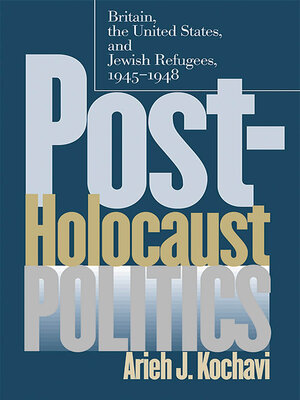Post-Holocaust Politics
ebook ∣ Britain, the United States, and Jewish Refugees, 1945-1948
By Arieh J. Kochavi

Sign up to save your library
With an OverDrive account, you can save your favorite libraries for at-a-glance information about availability. Find out more about OverDrive accounts.
Find this title in Libby, the library reading app by OverDrive.



Search for a digital library with this title
Title found at these libraries:
| Library Name | Distance |
|---|---|
| Loading... |
Between 1945 and 1948, more than a quarter of a million Jews fled countries in Eastern Europe and the Balkans and began filling hastily erected displaced persons camps in Germany and Austria. As one of the victorious Allies, Britain had to help find a solution for the vast majority of these refugees who refused repatriation. Drawing on extensive research in British, American, and Israeli archives, Arieh Kochavi presents a comprehensive analysis of British policy toward Jewish displaced persons and reveals the crucial role the United States played in undermining that policy.
Kochavi argues that political concerns — not human considerations — determined British policy regarding the refugees. Anxious to secure its interests in the Middle East, Britain feared its relations with Arab nations would suffer if it appeared to be too lax in thwarting Zionist efforts to bring Jewish Holocaust survivors to Palestine. In the United States, however, the American Jewish community was able to influence presidential policy by making its vote hinge on a solution to the displaced persons problem. Setting his analysis against the backdrop of the escalating Cold War, Kochavi reveals how, ironically, the Kremlin as well as the White House came to support the Zionists' goals, albeit for entirely different reasons.
Kochavi argues that political concerns — not human considerations — determined British policy regarding the refugees. Anxious to secure its interests in the Middle East, Britain feared its relations with Arab nations would suffer if it appeared to be too lax in thwarting Zionist efforts to bring Jewish Holocaust survivors to Palestine. In the United States, however, the American Jewish community was able to influence presidential policy by making its vote hinge on a solution to the displaced persons problem. Setting his analysis against the backdrop of the escalating Cold War, Kochavi reveals how, ironically, the Kremlin as well as the White House came to support the Zionists' goals, albeit for entirely different reasons.







